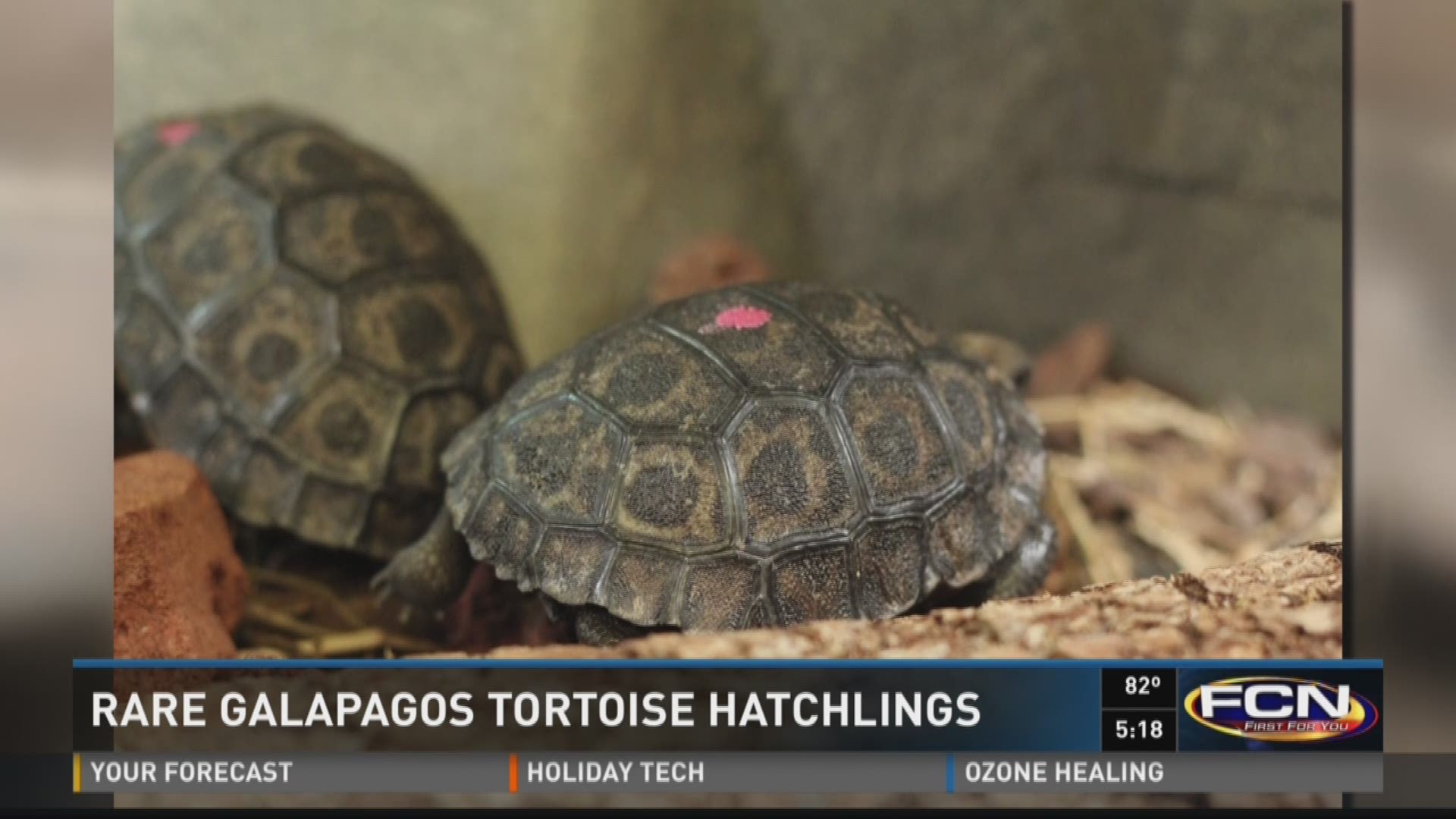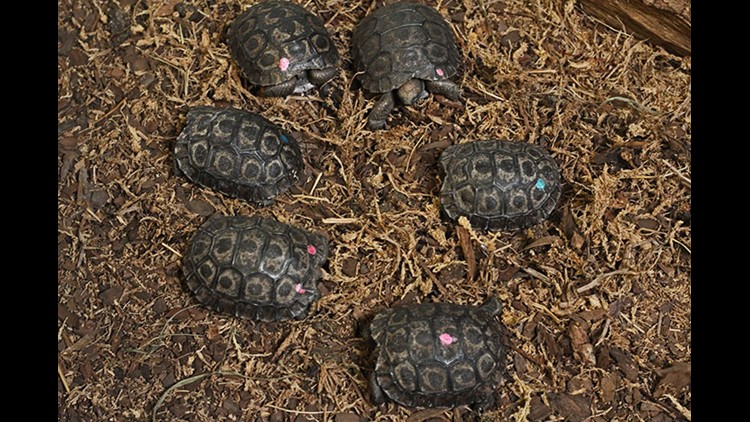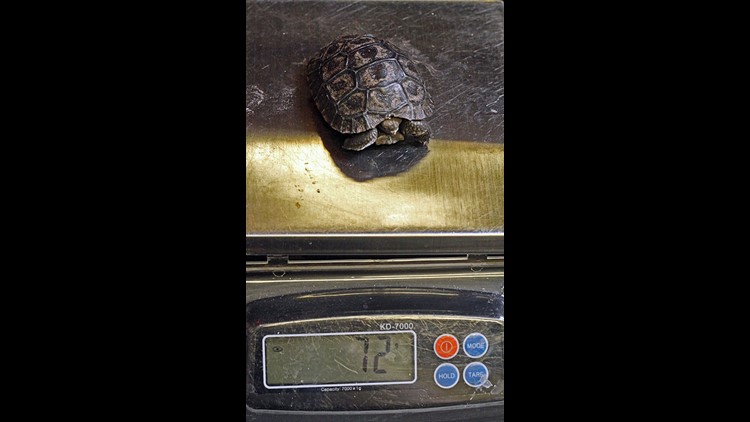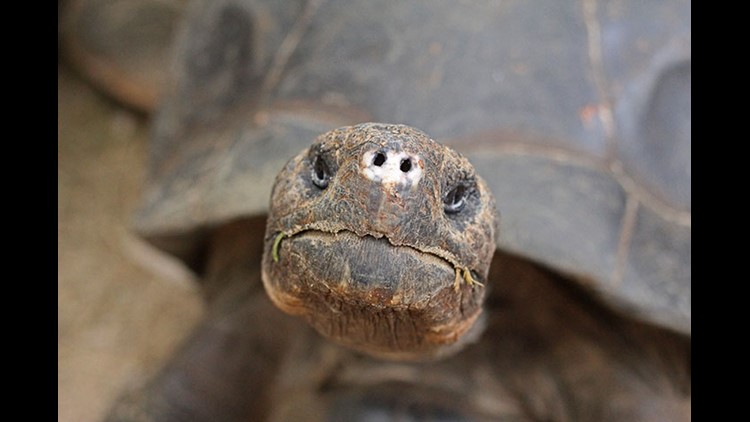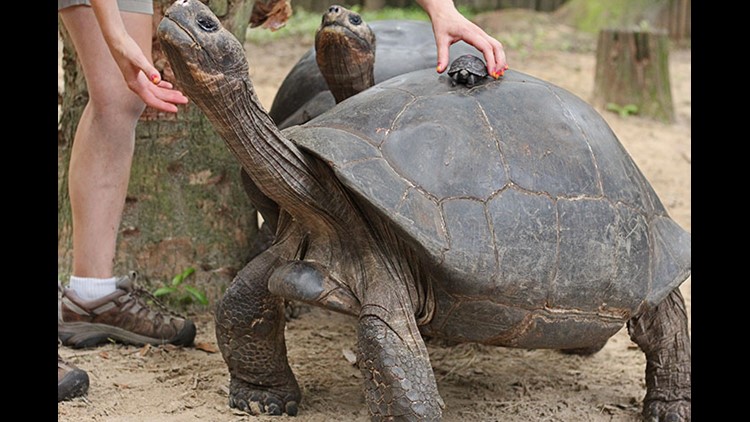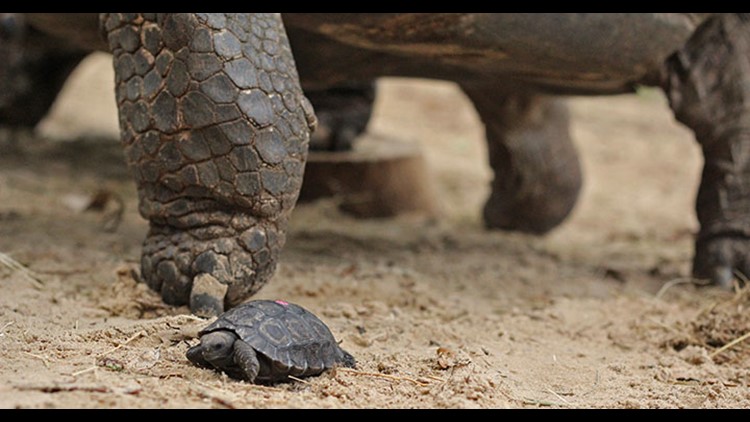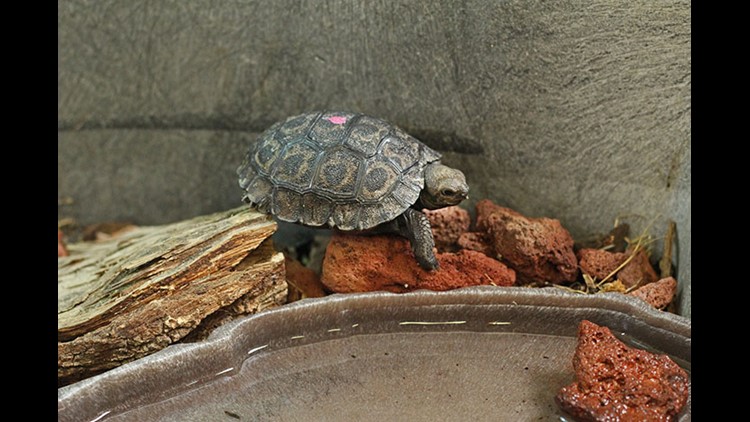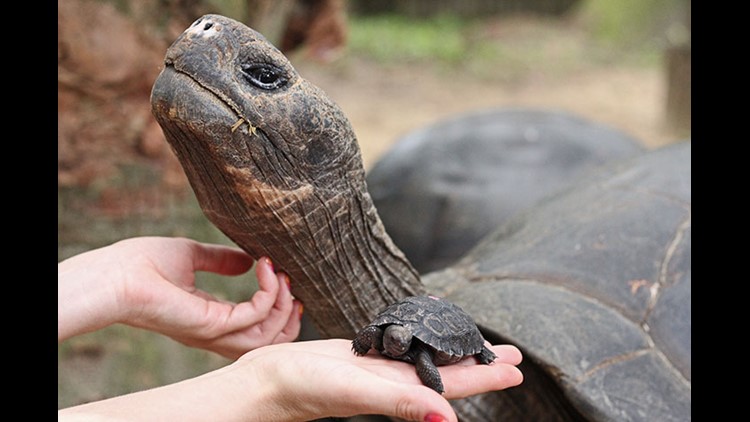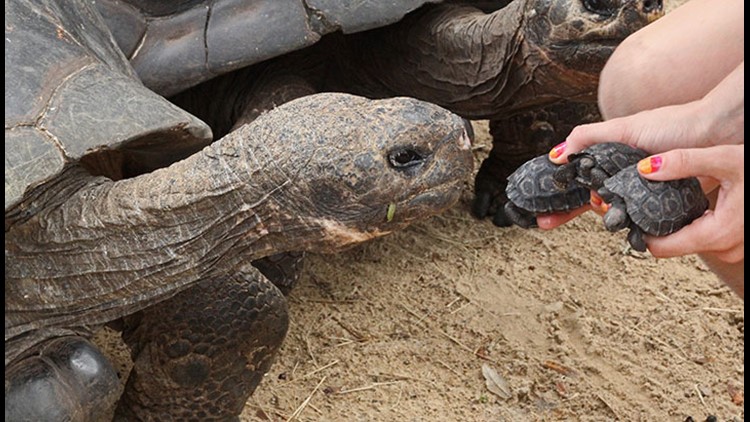ST. AUGUSTINE, Fla. -- An endangered Galapagos Tortoise named Michelle, who has called the St. Augustine Alligator Farm and Zoological Park home since the 1940s, has had six babies hatch recently!
Michelle (the shell pun isn't lost on her), is estimated to be anywhere between 90- slightly over 100 years old, according to Haleigh Grau, Reptile Keeper II at the zoo. By the way, tortoises can live anywhere from 160-200 years.
Michelle is estimated to be somewhere between 90 to 100 years old and she just had babies! @FCN2go pic.twitter.com/7bpMZiWSJH
— Destiny Johnson (@Hello_Destiny) July 1, 2016
Michelle and dad Pinky, a tortoise five or so decades her younger, had 16 eggs. This is not the first time that the zoo has had eggs, but it is the first time at the eggs have been fertile. Eight of the 16 eggs were viable.
"It's really lucky," Grau said of finding the eggs. She was closing up when she saw Michelle making her nest. Grau was able to take a photo of where the nest was and, with the work of other keepers, later dig up the eggs to make sure they were put into an environment where they could hatch safely.
"Once it's covered up..." Grau said with a shrug and a laugh, the nest is virtually indistinguishable from the rest of its surroundings.
After being put into incubation, the sex of a tortoise is temperature-dependent. When incubated at a warmer temperature, the tortoises will end up being females, and a lower temperature produces males. In the end, the zoo found itself with four female and two male adorable baby tortoises.
The first of these hatchlings made their appearance on June 12, surprising the staff at the zoo by coming early. The typical gestation period for these tortoises in the egg is between four and eight months.
This is a big win for the zoo, following the hatching of a rare Indian Gharial crocodile also in June. Grau called this "a year of firsts" for them.
"It's very exciting!" Grau said.
It's difficult to breed Galapagos tortoises, according to Grau. They are picky about their partners, they have to have the right diet and nutrition, and they have to even have the right kind of substrate, or bedding.
These wee tortoises come in at around 72 grams or .15 pounds and compared to dad Pinky, who weighs 450 pounds, have some more time behind the scenes to make sure that they are eating regularly and that their bellies, which are split and open at their hatching, are closed up.
Baby tortoises!
The zoo is not sure how many of the babies they will be keeping, as Pinky does not belong to them and was loaned for mating, so some of the babies will be sent elsewhere, but sometime in the future these little ones will be viewable by the public.

